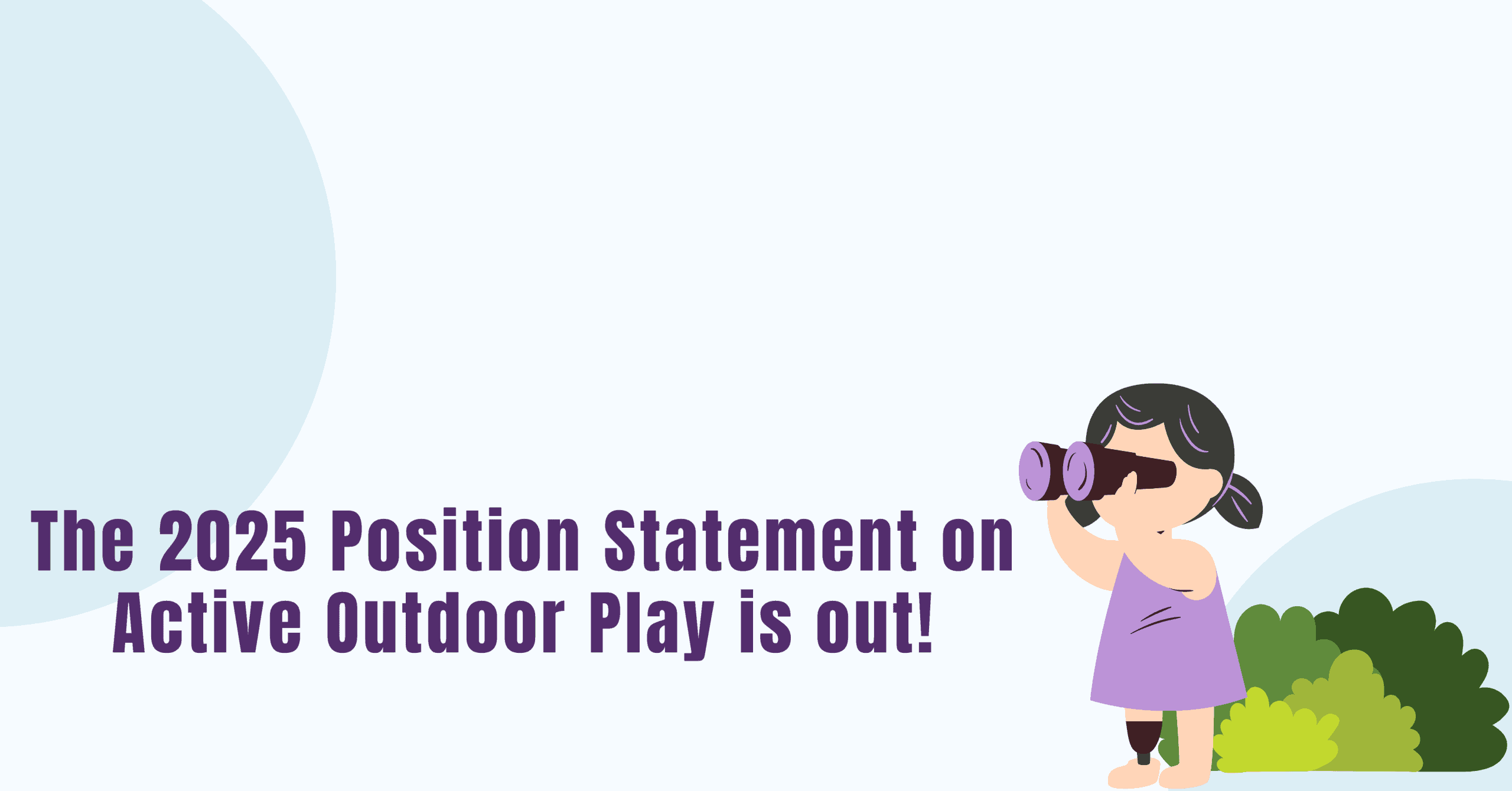
Launch of the 2025 Position Statement on Active Outdoor Play!
SEPTEMBER 25TH, 2025 — Ottawa, Canada – Outdoor play is as advantageous for adults as it is for children and should be integrated more often into healthcare practice, according to new global research released today by Outdoor Play Canada. A three-year study and consultations with more than 200 global experts representing all inhabited continents found outdoor play promotes confidence, facilitates ongoing learning, and fosters a sense of community and belonging, among many other benefits. The research is included in the Global Position Statement on Active Outdoor Play and was released at the Breath of Fresh Air (BoFA) Outdoor Play Summit taking place September 25-27 in Ottawa, Canada.
By 2050, Canada’s population aged 85 and older is projected to more than triple, reaching over 2.7 million people[i]. This demographic shift underscores the urgent need to integrate active outdoor play into health systems, not just for children, but for older adults as well. Seniors face some of the highest rates of loneliness, sedentary behavior, and screen time, all of which are linked to poorer mental and physical health outcomes[ii], [iii]. Research shows that regular outdoor activity goes far beyond childhood benefits, and can reduce fall risk, improve sleep, enhance mood, and support independence in aging populations[iv]. As a low-cost, high-impact intervention, active outdoor play offers a powerful tool to promote healthy aging, reduce healthcare burdens, and build more connected, resilient communities.
“Active outdoor play is a scalable and sustainable antidote to the side-effects of modern living,” says Professor Mark Tremblay, President of Outdoor Play Canada, Senior Scientist at the Children’s Hospital of Eastern Ontario Research Institute and Professor of Pediatrics at the University of Ottawa . “While we often think of outdoor play as being for kids, it really benefits the mind, body, and spirit of people of all ages, and promotes healthy communities and environments.”
Those leading the development of the Statement say the evidence is clear: outdoor play is a powerful, practical way to address many of the challenges we face globally. The 2025 Position Statement builds on the original released a decade ago, with key updates that include:
- Broadened Scope Across Lifespan: The statement now recognizes the importance of active outdoor play for people of all ages, not just children, highlighting its role in promoting physical, mental, and social well-being throughout life.
- Expanded Recommendations for Systems-Level Change: The statement includes updated guidance for healthcare professionals, urban planners, and policymakers, as well as educators and caregivers, to embed outdoor play into daily life, urban design, health strategies, and education systems.
- Stronger Emphasis on Equity and Inclusion: It calls for equitable access to outdoor play environments, emphasizing the need to remove barriers related to age, ability, race, ethnicity, gender, and socioeconomic status.
- Integration with Global Challenges and Sustainability: Active outdoor play is positioned as a contributor to climate resilience and environmental stewardship, aligning with the United Nations Sustainable Development Goals and promoting a deeper connection with nature.
- Emerging Areas for Research and Innovation: It identifies new questions around adult play, intergenerational engagement, schoolyard design, and the role of outdoor play in addressing screen time, loneliness, and global sustainability.
“The 2025 Position Statement envisions a world where every person can move freely, play safely, and thrive in nature-rich spaces—a world shaped by equity, inclusion, and our shared responsibility to care for one another and the planet,” says Dr. Eun-Young Lee, Associate Professor at Queen’s University (Canada) and Visiting Professor at Yonsei University (South Korea). “This is not just about health outcomes; it’s about justice, access, and reimagining systems so everyone can benefit.”
“You won’t stick with something you don’t enjoy. By bringing an outdoor play lens to things like physical activity, environmental stewardship, education, community building, and equity, we can rediscover joy in the very things we know are good for us. It’s about supporting the health of ourselves, our communities, and the planet. What could be better?”, says Dr. Louise de Lannoy, Executive Director of Outdoor Play Canada.
To view or download the full position statement, visit outdoorplaycanada.ca/aop10
If you would like to help us translate the Position Statement into other languages, please reach out! We also warmly invite you to show your public support of this work by clicking on the endorsement button on the AOP10 page here!
[i] https://www12.statcan.gc.ca/census-recensement/2021/as-sa/98-200-X/2021004/98-200-X2021004-eng.cfm
[ii] https://www.canada.ca/en/public-health/services/reports-publications/health-promotion-chronic-disease-prevention-canada-research-policy-practice/vol-43-no-4-2023/social-isolation-loneliness-positive-mental-health-older-adults-canada-covid-19-pandemic.html
[iii] https://www150.statcan.gc.ca/n1/pub/82-003-x/2022010/article/00002-eng.htm
[iv] https://seniorsite.org/resource/15-easy-outdoor-activities-for-seniors-that-boost-health-happiness/

